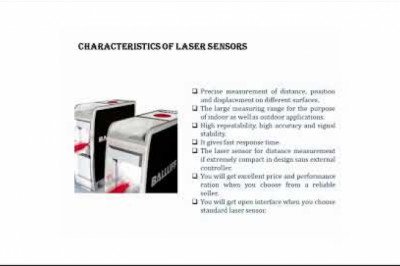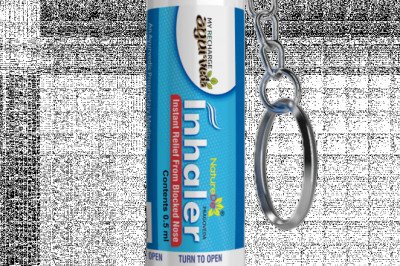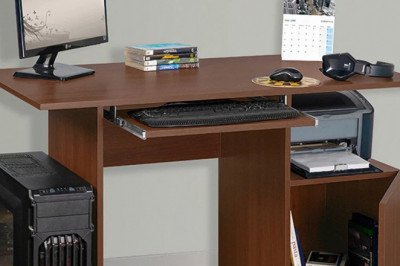views
In the fast-paced digital age we live in now, we depend on laptops more than ever. Laptops have become an important part of our daily lives, whether we use them for work, school, or fun. But the battery life of a laptop is one of the most important things to think about when using one. Depending on how it is used and the model, the average laptop battery can last anywhere from 2 to 6 hours. Because of this, it's important for us to know how to get the most out of our laptop's battery. Not only does it keep us from having to charge our laptops all the time, but it also helps the battery last longer, saving us both time and money in the long run.
In this blog post, we'll talk about different ways to get the most out of your laptop's battery. We will go over everything you need to know to keep your laptop running longer, from simple tips like adjusting the brightness and turning off apps you don't use to more advanced tips like optimizing battery settings and upgrading hardware. We will also talk about some of the most common misunderstandings.
1. Change the settings for screen brightness and power to save battery life
Laptops are great machines that make our lives easier and more accessible in ways that we could only dream about a few years ago. But all that convenience needs power, so it's important to make sure your laptop's battery life is as long as it can be. One of the best ways to save battery life on a laptop is to change the brightness and power settings. By turning down the brightness of the screen and using more energy-efficient settings, you can make your device's battery last much longer. The battery life of your laptop can also be improved by keeping the operating system and drivers up to date. By doing these simple things, you can make sure that your laptop will work for longer, giving you more time to work or play without having to charge it.
2. Close programs and background processes that you don't need
Closing programs and background processes that you don't need can help your laptop's battery last longer. When you have more than one app open on your device, even if you aren't using them, they still use your CPU, memory, and battery. Using the Windows Task Manager or other software made for this purpose, you can keep an eye on the system's resources and find the programs and processes that are making it work harder than it needs to. By closing these programs and processes, you can make your laptop use less power, which can make a big difference in how long the battery lasts. So, it's best to check your laptop's running programs and processes every so often and close the ones you don't need to save energy and get the most out of your battery.
3. Turn off Bluetooth, Wi-Fi, and other ways to connect when you're not using them
If you want your laptop's battery to last as long as possible, it's important to use its connectivity options wisely. Bluetooth, Wi-Fi, and other ways to connect should be turned off when not in use to save battery life, since they can drain the battery quickly. On many laptops, you can quickly turn off Wi-Fi with a keyboard shortcut like "Fn + F2." On others, you may have to manually flip the Wi-Fi switch on your laptop. In the same way, you can turn off Bluetooth from the device manager or the notification center on the taskbar. By turning off these features when you're not using them, you can make your laptop's battery last longer and work for longer without having to plug it in.
4. Use a web browser that uses less power or limit the time you spend online
To get the most out of your laptop's battery, you should use a web browser that uses less power or limit the amount of time you spend on the Internet. Your web browser is one of the programs that uses the most power on your laptop. Some web browsers use less power than others, so choosing one that uses less power can make a big difference in how long your battery lasts. Some web browsers have a feature called "Energy Impact" (for Mac users) or "Battery Saver" (for Windows users) that can help you choose a more energy-efficient web browser.
You can also save battery power by limiting the amount of time you spend browsing. This means you should close tabs you don't need and not leave your browser open when you're not using it. You can also change your web browser's settings to reduce the amount of data it loads. You can make your browser use less power by turning off images, videos, and animations that you don't need, optimizing your browser's cache to load pages faster, and using an ad blocker and other browser extensions. Overall, being aware of how you browse the web and using an efficient web browser can help you get more use out of your laptop's battery.
5. Use your keyboard and mouse less to save power
One of the best ways to get the most out of your laptop's battery is to use the keyboard and mouse less. This saves energy. The mouse and keyboard are the main input devices that need power to work. The battery on a laptop can die quickly if you use these devices all the time, especially if you type or browse for long periods. Consider using keyboard shortcuts instead of a mouse to save energy. Not only does this save energy, but it also speeds up your work. Also, turn off the backlight on your keyboard because it can use up a lot of power. By doing these simple things, you can get more work done on your laptop without having to constantly plug it in and charge it.
6. Don't run programs that use a lot of resources, like video editing software
If you want to get the most out of your laptop's battery and make it last longer, you should avoid running resource-intensive programs like video editing software while it's on battery power. These kinds of apps use a lot of memory and processing power, which can quickly drain your battery. You can get the most out of your laptop's battery by closing any programs or tasks you don't need, limiting the number of tabs you have open in your browser, or using the power-saving mode. Another good idea is to avoid running multiple programs at the same time, which can also use up more battery life. If you need to run applications that use a lot of resources, you should plug your laptop into a power source for the best performance. By doing these things, you can save your laptop's battery and make it last as long as possible, making sure you have enough power for important tasks and when you're on the go.
7. Use a cooling pad or put the laptop on a table to keep it from getting too hot
When you use your laptop when it's too hot, you can hurt not only the internal parts but also the battery. To stop this from happening, you should use a cooling pad or raise the laptop so that it can get more air. By letting the heat from the laptop's internal parts escape, cooling pads can lower the temperature by up to 10 degrees Celsius. Alternatively, putting the laptop on a stand can help air flow better and keep it from getting too hot. Using a cooling pad or putting the laptop on a table can keep it from breaking, but it can also improve the laptop's performance and make the battery last longer.
8. Turn off ports and devices that aren't being used to save power
To get the most out of your laptop's battery life, it's important to take a comprehensive approach. This means not only making sure to charge it correctly and manage the power settings, but also turning off any ports or devices that aren't being used. Every laptop has a lot of hardware built in, like USB and HDMI ports, that are necessary for some tasks but can also use energy even when they are not being used. By turning off these ports and devices that aren't being used, you can save power and help the battery last longer. To do this, go to the Control Panel's Device Manager and turn off any hardware that isn't being used at the moment. However, it's important to be careful and only disable devices that are not essential, as disabling important hardware could cause problems with the laptop's performance. By taking this step, users can optimize their laptop's battery life and ensure that it lasts as long as possible.
9. Switch to battery-saving mode when the laptop is not plugged in
One of the easiest and effective ways to maximize your laptop battery life is to switch to battery-saving mode when the laptop is not plugged in. This mode saves power by lowering the brightness of the screen, turning off the backlighting on the keyboard, stopping background programs that aren't needed, and slowing down the processor. These actions make the laptop use less power and help prolong the battery's lifespan. Most laptops have a mode that saves battery life that can be turned on through the power settings. To keep the battery life of your laptop going, it is also best to keep it plugged in as much as possible. If you do this every time, the battery could last longer and be used for longer.
10. Keep your laptop's battery in good shape by not overcharging it or letting it get too hot or cold
To make sure your laptop battery lasts as long as possible, you should avoid overcharging it and letting it get too hot or too cold. When you overcharge the battery in your laptop, it can lose its ability to hold a charge over time. Because of this, it is best to turn off the charger when the battery is fully charged. Also, putting your laptop in temperatures that are too hot or too cold can hurt the battery and shorten its life. When you're not using your laptop, it's best to keep it in a cool, dry place and stay out of direct sunlight. By taking care of your laptop battery in these simple ways, you can make sure it stays healthy and lasts for many years.
In the end, getting the most out of your laptop's battery can help you keep it running for longer and save you money in the long run. By doing things like adjusting your power settings, cutting down on background processes and apps you don't need, and keeping your laptop cool, you can make your laptop's battery last much longer. It's important to remember that battery life will gradually decrease over time, but if you take care of your laptop, you can make sure it gets the most out of its battery life for as long as possible.












Comments
0 comment